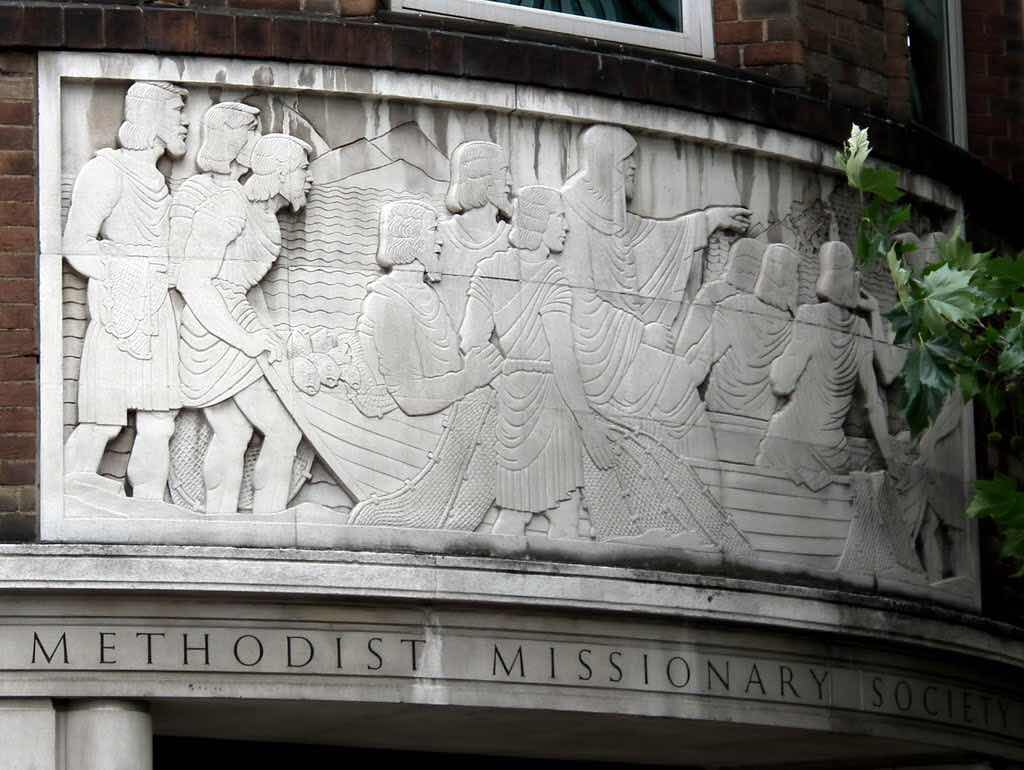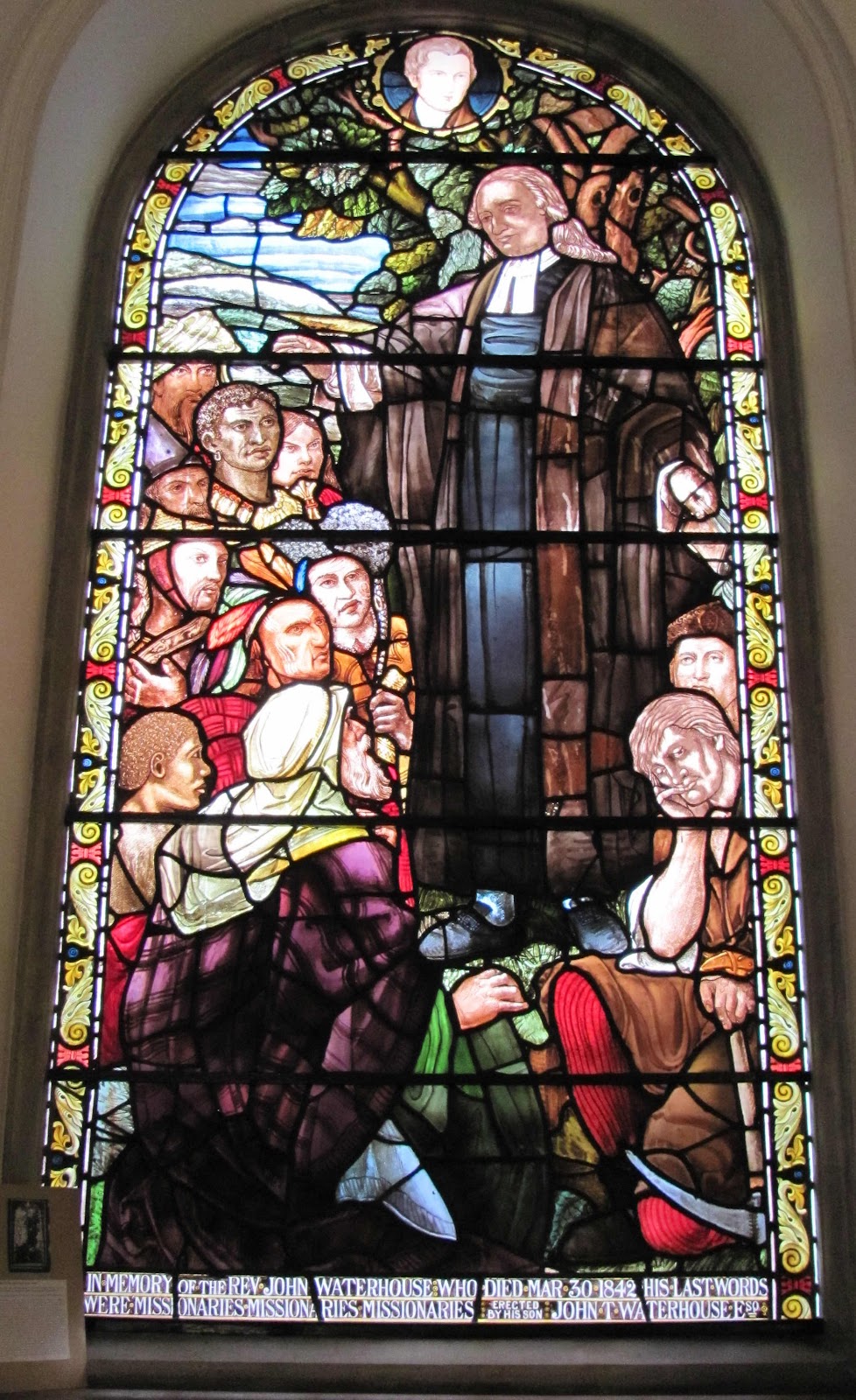
On 24 May 1738, John Wesley felt God’s presence in a way he had never experienced before. Saving faith was given to him, and the assurance of sins forgiven.
He was so excited by this turn of events that he felt he must share his news with his brother Charles. Charles was in bed, recovering from pleurisy, when John came round, late on the evening of 24 May, to tell him all that had happened. What John didn’t know was that just three days previously, on Whit Sunday, Charles had had a very similar experience. In his sickbed Charles had written a hymn to describe his spiritual reawakening, and the brothers and their friends now sang this new song together:
Where shall my wandering soul begin?
How shall I all to heaven aspire?
A slave redeemed from death and sin,
A brand plucked from eternal fire,
How shall I equal triumphs raise,
Or sing my great deliverer’s praise.

I wonder on this day, the closest day we have as a feast day as a denomination, whether we can find in this story of conversion, the future of the Methodist people John Wesley founded. As we are seeing in this coronavirus crisis we shall have to “do church differently” for a long time, maybe this is time given to us by God to only keep alive what is important. What do you think?
First, maybe we need to rediscover being a people who enable the warmed heart or strange palpitations! John Wesley went to a meeting where he heard someone reading from Luther’s preface to Romans and suddenly it all made sense to him. His faith had been out of a book, now it was personal. He was convinced he was forgiven and that Christ had died for him. It was like the pop song that has just come into my head by Depeche Mode:
“Reach out and touch faith
Your own personal Jesus
Someone to hear your prayers
Someone who cares
Your own personal Jesus
Someone to hear your prayers
Someone who's there...”
Can we be a church again that leads people to a personal faith in Jesus? John Wesley put the Methodist people into classes where they prayed together, read the Bible together, supported each other and shared testimony with each other what God had done in their lives since last they met. They were also accountable to each other. I love that an early Methodist hymn book had a section in it called “hymns for backsliders”!
We need to rediscover the power of small groups. We may need to meet virtually for a while. For our folk not on line we may need to provide study material on paper. We also need to put pastoral care higher up on our agenda. In this strange time, some churches have put their folk into groups of three or four and they ring each other up to give some support and care. I think that will need to continue.
The warmed heart comes when we suddenly see this Jesus can change our lives. Think back how it happened to you. For me it came through the old Methodist Association of Youth Clubs (MAYC) London Weekend when we went to the Albert Hall to join thousands of others for inspiring worship and I just was overawed by it, and it also came through the preaching of my minister when I was a teenager, the Rev Geoffrey Hawkridge, at Folly Methodist Church pictured below. He was enthralling as a preacher and it was as though he was speaking to me only. He wrote in my service book on my confirmation his favourite verse of Scripture, Isaiah 26: 3:
3 You will keep in perfect peace
those whose minds are steadfast,
because they trust in you.
The warmed heart. Remember Jesus gave people time and having been given time and care they believed in him.

Then secondly I think we need to discover our call to go. John Wesley would later say “I look upon the world as my parish.” Sadly keeping the church going has meant we have in recent times acted as though the parish is our world. Maybe, just maybe, we will, even when we are allowed back into our buildings, think about our buildings less and being in the world more. I love cathedrals and I think they have it right. We take in the space and the awe of choral evensong to be energised to leave different people. We sit and pray I the holy space with the Church triumphant in order to be what the 1936 Methodist Hymn Book calls the Church militant. We need holy spaces to connect with God again and find what Wesley found. There is a call to get churches open for private prayer. It isn’t safe yet, but it will come. Remember in the afternoon of 24 May 1738, John Wesley went to evensong at St Paul’s Cathedral, where the choir were singing Henry Purcell’s setting of Psalm 130: “out of the depths have I called unto thee.” Maybe sitting taking in inspired him to take the next step. He saw his spiritual unrest. What made him go to that meeting later albeit “unwillingly”?
Jesus’ last command to his disciples is to “go” - go into all the world. The disciples were to be his witnesses and take him into the places which needed good news. Methodism has always been a movement. Remember John Wesley was an Anglican priest frustrated that the church of his day was not reaching ordinary people. Remember he remained an Anglican! We were a revival movement called to shake up the C of E not meant in his day to be separate. His preaching outside enabled him to reach huge crowds. Perhaps our corporate worship will start again outside where this virus spreads less than inside. Drive through Methodism!
John Wesley encouraged his people to get involved in society, to challenge injustice and to go where no one had gone before. He wrote on medicine and encouraged schools and his last letter before death was to Wilberforce about the evil of slavery.
Our best work as a denomination is still done when we go. We are called to know what is going on in the world and protest where things are wrong with the message of the Gospel. If we spend all our energy keeping a building open then we have lost our way. I keep remembering when I worked at the Overseas Division of the Methodist Church from 1986 to 1991, pictures of missionaries on the walls, and a great chart of their years of service, in what was then Committee Room A. Some of them didn’t last very long but they had a conviction that “going out” was their call.
I found these words, which, while a challenge, sum up our evangelistic task:
“ People sometimes argue that involvement in political life involves getting our hands dirty, so is something Christians should avoid. Butwe believe in a God who is present I everything, including political institutions, a God who is heard.”

President Trump on Friday said that churches should open “right away, this weekend” as they are essential and America needs prayer. He has caused some churches to remind him they have not shut, despite a lockdown. I like this response from the Bishop elect of the Episcopal Church in the Diocese of Missouri:
"The work of the church is essential.
The work of caring for the lonely, the marginalized, and the oppressed is essential.
The work of speaking truth to power and seeking justice is essential.
The work of being a loving, liberating, and life giving presence in the world is essential.
The work of welcoming the stranger, the refugee and the undocumented is essential.
The work of reconciliation and healing and caring is essential.
The church does not need to “open” because the church never “closed”. We who make up the Body of Christ, the church, love God and our neighbours and ourselves so much that we will stay away from our buildings until it is safe. We are the church."
We are to go.

Then finally, I think we need to rediscover what John Wesley called “the optimism of grace.” This, for me, is the most exciting bit of Methodist theology. That God in Jesus reaches out to us in love and takes away our sins, even ours, is quite something. When we receive grace, it communicates forgiveness and makes renewal possible. God's love is intended to be received and to create a bond that encourages further receiving and giving of love. This bond enables us to share in the nature of God and be renewed in God's image. God continually initiates and empowers to provide new possibilities for us to respond in love.
I can do no better here than quote from a blog called Holiness Today:
“God's prevenient, co-operant grace is crucial to the practice of ministry. We join with God in the work to redeem humanity and all creation. As we proclaim the gospel in our cultural contexts, we can be assured that God is already working to restore all of creation.
Prevenient, co-operant grace also reminds us that regardless of a person's religious background or heritage, God is at work in that person's life. God is drawing and calling all people to respond properly and live abundant lives.
Prevenient grace has important implications for evangelism. Wesley is convinced that God's Spirit is at work everywhere in the world, extending God's love to all peoples. Christians can be assured that the Spirit is already present and at work before we arrive to evangelize. Before we act, God is acting to reconcile and give new birth. Wesley's "optimism of grace" describes the hope we enjoy that God is universally active today and always.”

Here’s the message of Methodism. We are to spread scriptural holiness throughout the land and we are to remember this grace, freely given, chiefly in the cross of Christ, is for everyone. Charles Wesley’s hymns have the word “all” in them a lot. We need to be optimistic again. We need to believe again in what we say we believe. It IS good news for everyone. If our Methodism doesn’t encourage people then well, I’m not sure we have any purpose. We also need to mean that all are welcome, and I mean all. Our table is an open one.
People sometimes ask ministers what their favourite hymn is. I have several, but this one for me sums up what we stand for and what I try inadequately to share in ministry.
Let earth and heaven agree,
Angels and men be joined,
To celebrate with me
The Saviour of mankind;
To adore the all-atoning Lamb,
And bless the sound of Jesu's name.
Jesus, transporting sound!
The joy of earth and heaven;
No other help is found,
No other name is given,
By which we can salvation have;
But Jesus came the world to save.
Jesus, harmonious name!
It charms the hosts above;
They evermore proclaim
And wonder at his love;
'Tis all their happiness to gaze,
'Tis heaven to see our Jesu's face.
His name the sinner hears,
And is from sin set free;
'Tis music in his ears,
'Tis life and victory;
New songs do now his lips employ,
And dances his glad heart for joy.
Stung by the scorpion sin,
My poor expiring soul
The balmy sound drinks in,
And is at once made whole:
See there my Lord upon the tree!
I hear, I feel, he died for me.
O unexampled love!
O all-redeeming grace!
How swiftly didst thou move
To save a fallen race!
What shall I do to make it known
What thou for all mankind hast done?
O for a trumpet voice,
On all the world to call!
To bid their hearts rejoice
In him who died for all;
For all my Lord was crucified,
For all, for all my Saviour died!
Isn’t that fabulous? Read all seven verses slowly. Then ask before lockdown, what was your church spending its time and energy on? Remember John Wesley’s last words on earth: “the best of all is, God is with us.” He believed in an incarnate God who comes into the world to embrace it with unexampled love and all redeeming grace.

So on this day, as we remember our beginnings out of conversion, we ask what we are for. We adapt to a new world around us and we hold on to what we know to be certain. That God’s love is sufficient. We take it in, we go with it, we party with its optimism and we celebrate no one is outside it even if we try and exclude them or ignore them.
“A Methodist is one who has ‘the love of God shed abroad in his heart by the Holy Ghost given unto him’; one who loves the Lord his God with all his heart, and with all his soul, and with all his mind, and with all his strength.’ God is the joy of his heart, and the desire of his soul; which is constantly crying out. ‘Whom have I in heaven but Thee? And there is none upon earth that I desire beside thee! My God and my all! Thou art the strength of my heart, and my portion for ever.’